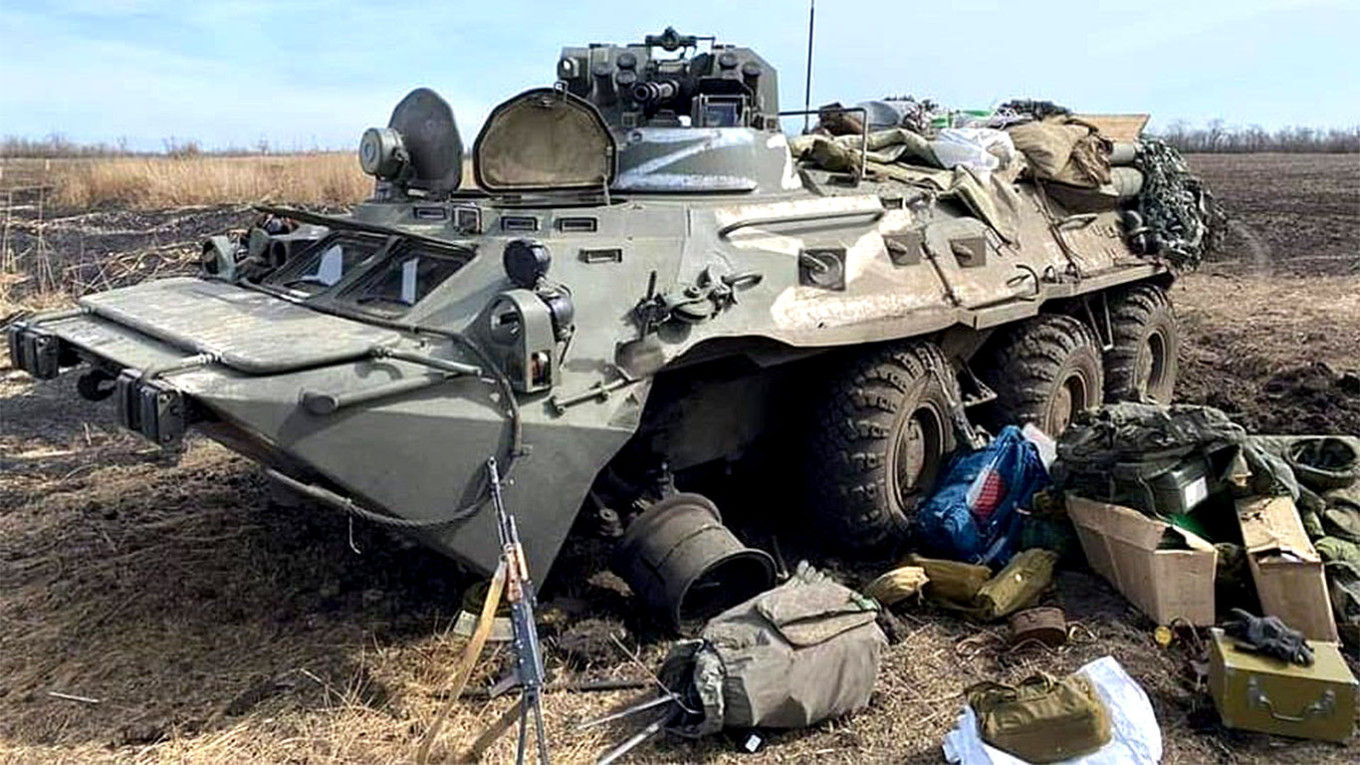One hundred Russians have been accused or convicted under Russia’s draconian wartime censorship law on spreading "false information," according to leading human rights lawyer Pavel Chikov.
Those convicted under the so-called "war fakes" law face up to 15 years in prison.
Two people have so far been sentenced to prison terms and 28 people accused of the crime are in jail awaiting trial, according to figures Chikov posted Thursday on Telegram.
Seven instances of use of the law were added to Chikov’s tally in the last week, including the first Russian servicemen to be accused under the law since it was introduced in early March.
The recent additions include soldiers Ilya Karpenko and Valery Kotovich, as well as Ilya Ponomarev, a former lawmaker and vocal Kremlin critic.
Thirty-two people accused of violating the law have fled Russia, according to Chikov, including investigative journalists Andrei Soldatov and Ruslan Leviyev, who the authorities subsequently put on wanted lists.
Fifty-seven of the 100 defendants face between five and 10 years in prison, Chikov said. Another 24 face up to three years behind bars.
Opposition leaders Ilya Yashin and Vladimir Kara-Murza are among those accused under the law and in prison awaiting trial.
Russian courts have, so far, delivered nine sentences under the "war fakes" law.
Chikov said two people had been fined up to 3 million rubles ($50,000), two received community service and two more suspended sentences.
The harshest sentence was received by Moscow municipal deputy Alexei Gorinov, who was handed seven years in prison in July.
The “war fakes” law is considered to be the most draconian of a bundle of censorship laws punishing criticism of Russia’s war in Ukraine, which the Kremlin officially labels a “special military operation.”
In total, more than 200 Russians are facing criminal prosecutions for voicing opposition to the war, according to protest monitoring website OVD-Info.
A Message from The Moscow Times:
Dear readers,
We are facing unprecedented challenges. Russia's Prosecutor General's Office has designated The Moscow Times as an "undesirable" organization, criminalizing our work and putting our staff at risk of prosecution. This follows our earlier unjust labeling as a "foreign agent."
These actions are direct attempts to silence independent journalism in Russia. The authorities claim our work "discredits the decisions of the Russian leadership." We see things differently: we strive to provide accurate, unbiased reporting on Russia.
We, the journalists of The Moscow Times, refuse to be silenced. But to continue our work, we need your help.
Your support, no matter how small, makes a world of difference. If you can, please support us monthly starting from just $2. It's quick to set up, and every contribution makes a significant impact.
By supporting The Moscow Times, you're defending open, independent journalism in the face of repression. Thank you for standing with us.
Remind me later.






